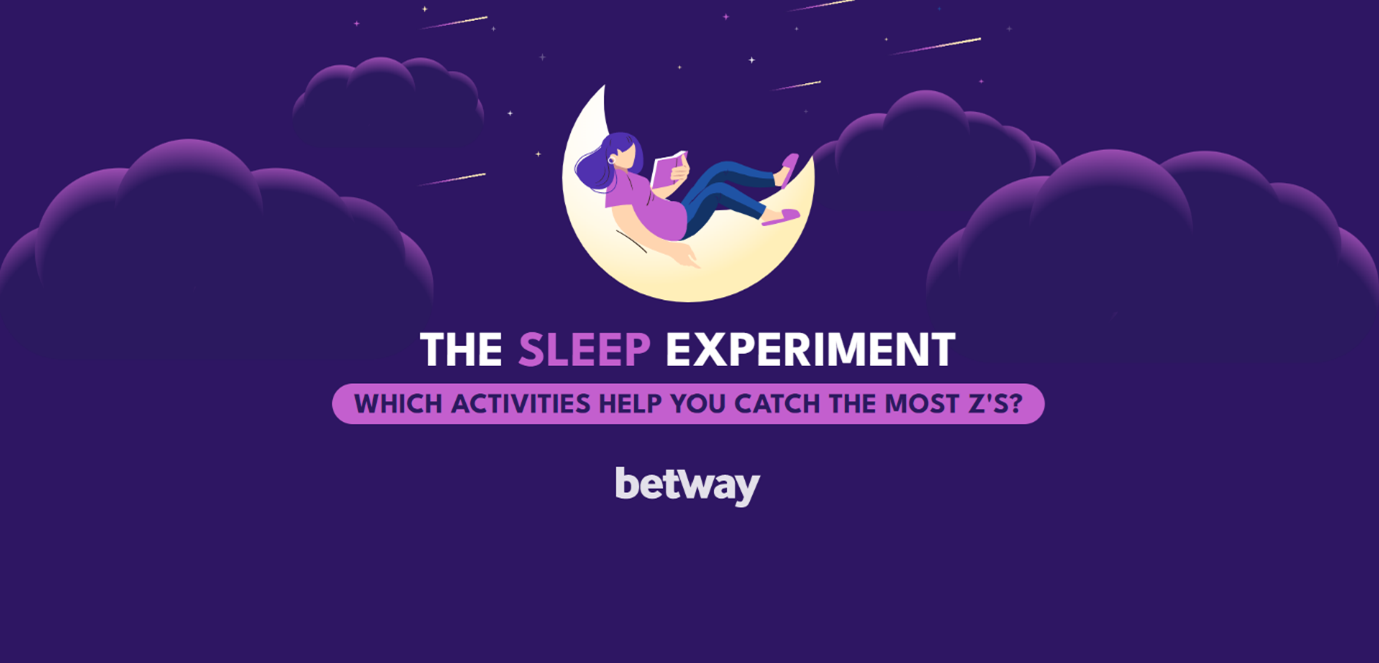When it comes to bedtime routines, many of us may wonder how our evening activities impact the quality of our sleep – from social media and gaming to the much loved bedtime read, everything we do before bed can influence the way we sleep. To find out how various activities before bed impacted on sleep, online casino Betway conducted an experiment, asking individuals to use sleep tracking apps to monitor how well they slept after engaging in different bedtime activities.
The top 10 best activities for a good night’s sleep were found to be:
Meditation – 88% sleep quality, 12 minutes awake in the night
Doing a face mask – 90% sleep quality, 14 minutes awake in the night
Watching a comedy film – 87% sleep quality, 14 minutes awake in the night
Listening to music – 87% sleep quality, 17 minutes awake in the night
Cleaning your bedroom – 80% sleep quality, 17 minutes awake in the night
Reading a book – 76% sleep quality, 17 minutes awake in the night
Having a snack before bed – 78% sleep quality, 20 minutes awake in the night
Mobile gaming – 71% sleep quality, 20 minutes awake in the night
Scrolling through social media – 71% sleep quality, 24 minutes awake in the night
Doing a home workout – 73% sleep quality, 27 minutes awake in the night
Quality of Sleep
The study not only looked at length of sleep but quality of sleep.
For example, the study revealed that social media browsing prior to bedtime led to the least amount of deep sleep, with participants spending only 13% of their sleeping time in this stage. In contrast, meditation resulted in the most deep sleep, with an average of 38% of total sleep time spent in this stage.
Additionally, the study found that watching the news and scrolling through social media both resulted in high percentages of REM sleep, at 55% and 53% respectively, while reading a book ranked third at 51%.
The worst thing to do before bed
Somewhat unsurprisingly, the worst activity to do before bed for a quality night’s sleep is to watch a horror movie or a crime show. Participants who engaged in watching horror movies scored an average sleep score of just 65%. Although they were able to sleep for an average of seven and a half hours, they were awake for around 26 minutes during the night. Watching true crime shows also resulted in poor sleep, with an average sleep quality of 68% and 27 minutes awake in the night.
The best thing to do before bed
Meditation was found to be the best activity for a good night’s sleep, with an average sleep quality score of 88%. On average, participants slept for eight hours and four minutes and spent only 12 minutes awake during the night. This is the lowest amount spent awake of all activities analyzed. Meditating is a particularly popular method to reduce stress, which may explain why participants were very restful during the night. It’s interesting that just 30 minutes of this practice before bed has such a positive effect on our sleep quality.
The importance of self care
Self-care activities, such as doing a face mask before bed, also ranked highly in the experiment. The activity resulted in an average sleep score of 90% and participants slept for seven hours and 15 minutes, and were only awake for 14 minutes during the night.
Watching a comedy film before bed also ranked well, coming in third place with an overall score of 8.74. Respondents who watched a comedy spent just 14 minutes awake per night and their sleep quality was rated at 87%. The average amount of time spent sleeping after watching a comedy was eight hours and 11 minutes.
Rounding off the top five was cleaning your bedroom. Although some may consider this task boring, it was found to have a great effect on sleep quality. Participants who tidied their bedroom before bed reported a sleep quality of 80%, as well as just 17 minutes of restlessness.
Reducing the impact of social media and gaming on sleep
While they scored in the top ten, both with 71%, engaging with social media and gaming on devices are not ideal activities to do before sleep, because the blue light emitted by most devices can delay the release of melatonin – a natural chemical the body releases to help us sleep. If you sit scrolling late at night and really can’t give up the habit, check your device to see if there is a filter setting to filter out the blue light (many modern devices have this). Your eyes will thank you for this too, as there is some evidence to show it can cause oxidative damage to the eyes.
Overall, it seems there is a lot you can do to improve the quality of your sleep. Will you be inspired to change your habits?
